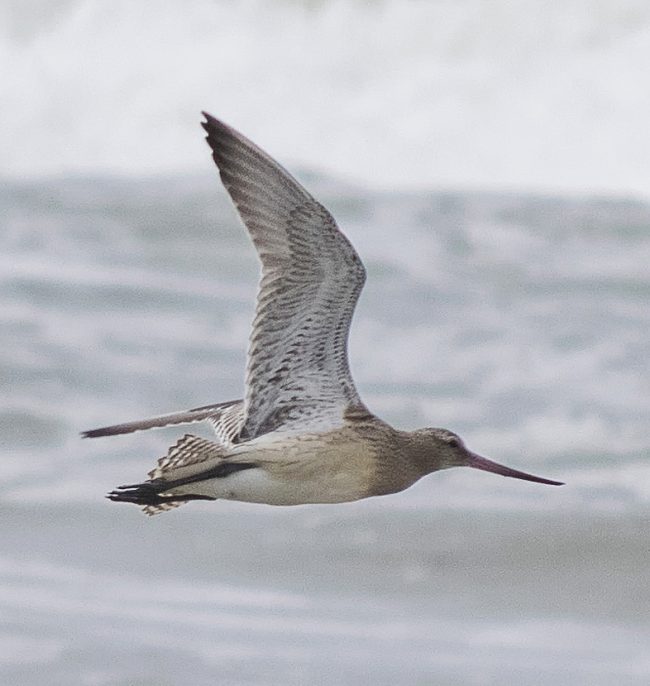
Longest nonstop bird flight
A five-month-old bird has set a new world record for longest nonstop bird flight. The bar-tailed godwit – aka Limosa lapponica – traveled from Alaska to Tasmania nonstop for 11 days, a journey of 8,425 miles (13,560 km). The godwit took off from Alaska on October 13, 2022, and reached Ansons Bay in Tasmania, just south of Melbourne, Australia, on October 24. Since the young bird was tagged, it allowed scientists to accurately track its flight.
The scientists were able to track the bird as it crossed over various islands in the Pacific Ocean, including Vanuatu and New Caledonia. But it did not stop to rest in any inviting tropical locale, bound headlong for Australia. In fact, this is the first recorded flight between Alaska and Tasmania, a large island of Australia south of Melbourne.
Previous record holder
The previous record holder for nonstop flight of a bird came just last year, in 2021. In that year, a male bar-tailed godwit tagged 4BBRW flew from Alaska to New Zealand nonstop for a distance of 8,108 miles (13,050 km). The 2021 record broke a record set the year before that, in 2020, and by the same bird. In 2020, 4BBRW also flew from Alaska to New Zealand but a bit shorter at 7,987 miles (12,854 km).
What is a bar-tailed godwit?
The bar-tailed godwit belongs to the sandpiper family. In summer, you can find the bar-tailed godwit in Europa and Asia before it moves on to Alaska to nest. The bar-tailed godwit makes a loud kew-kew sound. When the birds are old enough, they make their marathon of a migration south to areas around New Zealand and Australia. Other birds that make long migrations do a lot of gliding, but not the bar-tailed godwit. They are active, flapping their wings for the entire journey.
Bottom line: A bar-tailed godwit has flown for 11 days nonstop, at a distance of 8,425 miles (13,560 km) from Alaska to Tasmania, Australia. This sets the new world record for longest nonstop bird flight.
Read more: Which bird migrates the farthest?
The post Longest nonstop bird flight: A new world record first appeared on EarthSky.
0 Commentaires